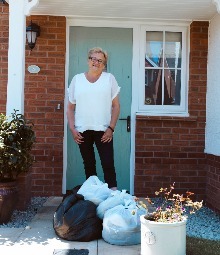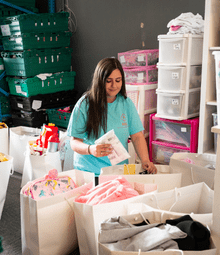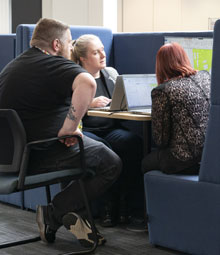What we are doing to keep you safe?
It is a legal requirement to have an electrical test every five years in a rented home. This is called an Electrical Installation Condition Report or ‘EICR’ for short.
What is involved in the EICR electrical safety test?
During an EICR inspection, a qualified electrician or electrical engineer will inspect the electrical installations in your home. The engineer will carry out a visual inspection, checking for cracks, breaks and signs of overheating. Electrical testing will then be carried out where voltages and currents are used to check the safety of the different circuits. If issues are found, they will be recorded and detailed in the report. We will let you know when yours is due, usually by sending you a letter. Here’s what to expect when you’re having your electrical test.
Does this mean my property will be re-wired?
The test doesn’t necessarily mean your home will need to be re-wired. It may mean that we make some small safety adjustments to keep your home healthy and more importantly, keep you safe.
Following your electrical test, if your home does need a rewire it will be noted on the report at the end of the test. If this is the case, our team can talk this through with you and discuss next steps.
Electricity Do's and Dont's
1
Don’t do it yourself
DIY wiring can lead to electrical parts overheating, causing fires, shocks and potential serious injury.
2
Don’t overload sockets
Plugging too many devices into one socket, and over-using extension leads, can lead to overheating and fires.
3
Do buy trusted electrical goods
Cheaper, ‘unofficial’ electrical products such as phone chargers may not meet safety regulations which can increase the risk of fire.
4
Do allow electrical inspections to take place
Regular checks are the best way to be sure that electrical installations are safe, and to spot potential problems before it’s too late.
Power outage
There may be a rare instance where your power goes out. Follow these steps to keep yourself as safe as possible.
Appliances
Your home is full of appliances, from the kettle to the television. Here are some key tips on how to keep yourself and your loved ones safe:
- Always turn off plug sockets when you aren’t using them.
- Do not overload plug sockets; try to use one plug per socket.
- Inspect appliances for frayed cords and sockets for scorch marks. If your appliances show signs of these, they will need repairing or replacing.
- ‘Don’t use metal with an electrical appliance. For example, do not use metal cutlery with a plugged in kitchen appliance.
- If you need to clean an appliance, always make sure the appliance is unplugged and the power cable and plug are kept out of water.
Water and electricity do not mix. Always keep electrical appliances away from water!
Electrical safety with children and pets
Children and pets aren’t always aware of the dangers of electricity, but there are ways that you can protect them against electrical accidents in the home.
- Cover all outlets with plug socket guards; these can be purchased cheaply from DIY stores.
- Keep appliance cords out of the reach of children or pets, especially those connected to hot items such as kettles and irons.
- Don’t leave things like mobile phones charging in reach of children or pets in case they bite or chew them.
- Keep liquids away from any electrical appliances.

















